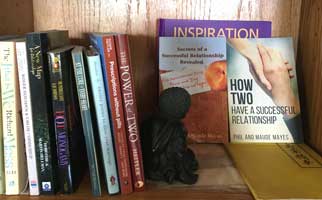Successful Relationship Reading Corner
 This week, we discuss why you need to avoid keeping score in your relationship. This, unfortunately, is a very common behavior in many relationships. Here are some articles to help you avoid acting in this way. This week, we discuss why you need to avoid keeping score in your relationship. This, unfortunately, is a very common behavior in many relationships. Here are some articles to help you avoid acting in this way.
Stop Keeping Score "Who does the most work in the office? Who gets the most attention? Who did most of the cleaning in the house? Who bought the most presents? Who called who the most? The answer is this: No one cares about the silly scorecards inside your brain. When people keep score, there’s only one outcome: Resentment."
Do You Keep Score in Your Relationships? "You and your partner just argued for the umpteenth time about whose turn it is to walk the dog:
“I walked her twice yesterday,” you point out.
“And I walked her for three days last week,” your partner retorts.
“Well,” you counter, “I took the kids to the doctor on Tuesday.”
And so it goes."
Keeping Score In Marriage: 7 Tips To Help You Not Keep Score "Are you keeping score in your marriage? If you are, stop! You might be keeping scores in your head, or written them down on a hidden piece of paper somewhere, or on your phone. Keeping score in your marriage will not only make you feel miserable and guilty.... It will keep you waiting like a Lion, ready to pounce on your predator (in this case your spouse) for any mistakes he/she makes."
|
|